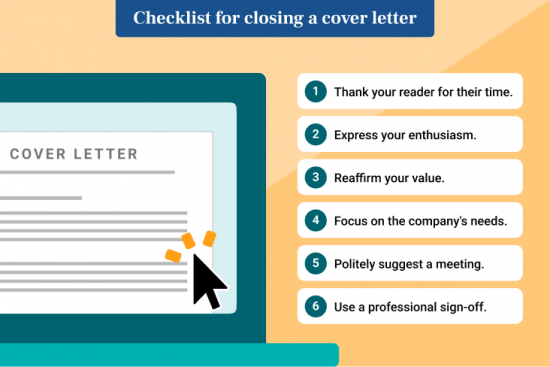15 Cover Letter Mistakes and How to Avoid Them
Learn about the most common cover letter mistakes job seekers make that prevent them from moving to the interview round. Keep reading for tips on how to avoid these errors and write a cover letter that helps you land the job.
Your cover letter is your first chance to make a strong impression. It shows employers how well you communicate and how effectively you can market yourself. A well-crafted letter can spark interest and encourage hiring managers to read your resume.
However, a poorly written cover letter can kill your chances before you even get started.
Don’t fret though! We’ll help you identify if you’ve made any cover letter mistakes and give you tips on how to fix them so you can have a successful job search and land your dream role!
The 15 Most Common Cover Letter Mistakes to Avoid
A cover letter gives you the opportunity to highlight your professional personality, enthusiasm for your career, and qualifications for the role. A cover letter filled with errors can just as easily work against you when not done right. So, what are some common mistakes to avoid when writing a cover letter?
1. Not editing AI-generated content
With the increase of large language model chat bots, AI has become a helpful tool for job seekers to write their cover letters and resumes. Although using chatbots like ChatGPT or Gemini can be a great starting point, these can produce content that is generic and repetitive.
Hiring managers receive dozens of letters per job opening, so they’re likely trained to catch common signs of a cookie-cutter AI-generated cover letter, such as:
- Overuse of em dashes (—)
- Formulaic sentence structures
- Distinct tone and voice that’s characteristic of AI
- Unnatural or repetitive phrasing
You can use an AI tool to overcome that initial writer’s block, but we suggest you use it as a very rough first draft. You should inject any AI-generated content with your own voice and style, and the experiences and skills that best speak to your qualifications.
2. Failing to address the hiring manager
One of those little details that tend to irk hiring managers is receiving a cover letter absentmindedly addressed as “To Whom It May Concern.” Although this cover letter greeting became standard a few years back, it’s now a big red flag.
Starting with “Dear Sir or Madam” or “To Whom It May Concern” is outdated and feels impersonal. Try to find the hiring manager’s name, or use the recipient’s job title (e.g., “Dear Marketing Manager”) if their name isn’t available on LinkedIn or the company site.
3. Rehashing your resume
Using your cover letter to repeat what you said in your resume is wasting the cover letter’s full potential. Recruiters expect a cover letter to go more in-depth into specific achievements.
Fortunately, you have way more flexibility when it comes to writing a cover letter. You can opt for focusing on expressing who you are as a professional and why your work ethic makes you stand out. You can also explain in detail each step you took to accomplish a specific goal, or highlight the skills and education that allowed you to progress in your career. The choice is yours, just don’t rehash your resume!
4. Writing one cover letter for every job
Should you use the same cover letter when applying for multiple jobs? No. Although we understand that writing a cover letter from scratch for each job application can feel daunting, the benefits of tailoring your letter for each application vastly outweigh the effort it takes to customize it.
Hiring managers can tell when your cover letter is generic enough to send to all potential employers, and they don’t like that. Instead, show you can go the extra mile by customizing it for the specific job.
Pro Tip
5. Being too vague
One of the most common cover letter mistakes is using vague, generic language. Phrases like “I’m a team player” or “I work well under pressure” don’t mean much without context, and hiring managers see them all the time.
Instead of vague claims, back up your statements with specific examples or results. For instance, instead of saying, “I’m a strong communicator,” try: “I led weekly client presentations that helped reduce churn by 20% over six months.”
Use quantifiable achievements whenever you can to make your accomplishments more memorable and credible.
6. Overusing “I” statements
It’s natural to talk about yourself in a cover letter, but starting every sentence with “I” can make your letter feel self-centered or monotonous.
Shift from a one-sided narrative that focuses more on your needs than the employer’s toward what the company needs and how you can help meet those goals. Try blending your qualifications with the company’s objectives, for instance:
“With five years of experience in customer success, I’ve helped teams like yours increase retention through personalized support strategies.”
Review your cover letter and count how many sentences start with “I.” Aim to rephrase at least half of them to vary sentence structure and balance the tone.
7. Being too wordy (or too brief)
Striking the right balance with your cover letter’s length is critical. If your letter is too long, you risk losing the reader’s attention; if it’s too short, you may not give enough context to stand out.
Your cover letter should be one-page long, and three to four paragraphs at most. Avoid long-winded paragraphs and excessive detail; instead, favor one or two accomplishments to discuss and even feel free to use bullet points to break up large blocks of text.
8. Using the wrong tone
Nailing your cover letter’s tone is key, especially if you’re using an AI cover letter generator! Aim for a professional yet conversational tone. You want to sound like a real person with confidence and a natural voice. Keep it respectful, but approachable, like you’re speaking to a future colleague, not a professor or a friend.
Quick tips to strike the right tone:
- Use action verbs and straightforward language.
- Avoid jargon, clichés, and buzzwords.
- Let your personality come through, but keep it professional.
- Read your letter aloud to make sure it sounds natural and sincere.
9. Ignoring the job description
One easily avoidable cover letter mistake is ignoring the job description. Too many candidates submit a generic letter that doesn’t speak directly to the role they’re applying for.
Mirror keywords from the job description to show the employer how you’re a match for their specific needs. For example, if the job ad mentions they’re looking for someone with “project management experience,” don’t just say you’re organized. Mention your experience managing projects from start to finish.
10. Forgetting to proofread
It might sound like a small detail, but spelling and grammar mistakes can seriously hurt your chances even if you’re otherwise a strong candidate. Submitting a cover letter with typos makes you look careless and unprofessional.
Avoid common cover letter proofreading mistakes like misspelled company names or job titles, inconsistent verb tenses, and repeated or missing words by stepping away from your letter and reviewing it with a fresh set of eyes.
Pro Tip
11. Not including a call to action
Ending your cover letter without a clear next step is one of the most overlooked cover letter mistakes to avoid. Many candidates simply wrap up with a “Thank you for your time” and miss the opportunity to invite the employer to take action.
Express enthusiasm for the role and company by politely requesting a meeting or interview. Reaffirm your fit for the role in a single, concise sentence that conveys confidence.
Example cover letter closing paragraph with a strong call to action:
“I’m excited about the opportunity to contribute to your marketing team and help drive creative, data-informed strategies. I’d be happy to discuss how my background aligns with your goals, so please feel free to reach out to schedule a conversation.”
12. Not matching your resume’s design
One subtle but important cover letter mistake to avoid is sending a letter that doesn’t visually or stylistically match your resume. Your cover letter and resume are part of the same package, and should look like it. That means using the same fonts, formatting, color scheme (if applicable), and contact header. When they match, it signals professionalism and attention to detail.
When you use any of our job application tools, you get access to over a dozen pairs of matching cover letter and resume templates that will give you a cohesive branding when applying for jobs.
13. Leaving out a proper closing and signature
The end of your letter isn’t just a formality, it’s your last impression on potential employers and you should take advantage of this section to convey your professionalism.
Leaving out a closing or signing off too casually (e.g., “Thanks” or no signature at all) can make your letter feel unfinished or rushed. It also shows a lack of interest or attention to detail, two big cover letter mistakes.
How to sign a cover letter correctly:
- Use a professional closing line.
- Sincerely
- Best regards
- Thank you for your time and consideration
- Warm regards (if appropriate for the tone)
Avoid overly casual endings like “Cheers,” “Take care,” or “Talk soon.”
- Include your full name.
Beneath the closing phrase, type your full name. If submitting a printed or scanned letter, you can insert a digital signature above your typed name for a polished touch.
- Include contact information (optional).
You can also add your phone number or email under your name to make it even easier for the hiring manager to reach you.
14. Talking about salary expectations
While compensation is an important topic, you shouldn’t lead with it in your cover letter. Doing so signals that you're more focused on pay than the role itself.
Employers want to see your enthusiasm for the job and the value you bring, not your price tag. Mentioning salary too early can derail your application before you even make it to the interview stage.
When should you talk about salary?
- Only if the employer explicitly requests it in the job ad
- If salary is required in the cover letter; if so, keep it brief and professional
Example: “Based on my experience and the responsibilities of the role, I would expect a salary in the range of $60,000 to $70,000, but I’m open to discussion.”
15. Forgetting to mention a referral
If someone in the company referred you for the role, don’t leave that out of your cover letter. Starting your cover letter by mentioning an employee referral is one of the easiest and most effective ways to grab a hiring manager’s attention.
Referrals instantly create a sense of trust and familiarity. They show that someone within the organization believes you're a good fit. Failing to mention a referral in your letter is a missed chance to add credibility and get your foot in the door faster.
Have you made any of these mistakes when writing your cover letter? Don’t worry; we’re here to help! Use our Cover Letter Generator to create a brand new, error-free letter that’s optimized for your job application.
A Good Cover Letter Includes:
Just like a resume has key sections you can’t leave out, the cover letter format has its own specific set of parts. A well-written cover letter should include:
- Header: Include your name and contact information, as well as your letter’s recipient information.
- Greeting: Address the hiring manager by name if possible. Avoid generic openers like “To Whom It May Concern.” If a name isn’t listed, try “Dear [Team Name] Hiring Manager.”
- Opening paragraph: Capture the reader’s attention by introducing yourself as a key candidate interested in the position.
- Body paragraph(s): Highlight how your background, skills, and accomplishments align with the job description. Focus on up to two key achievements or stories that show you’re the best candidate.
- Closing paragraph: Summarize your interest and qualifications, and include a strong call to action, such as expressing interest in an interview or further discussions about your candidacy.
- Sign off and cover letter signature: Close with a professional sign-off phrase like “Sincerely” or “Best regards,” followed by your full name and (optionally) your contact info.
Cover letter example
Now that you know what cover letter mistakes you must avoid to make a strong first impression, and you’ve seen the key elements that make a strong letter of application, you’re ready to write your own! Kick things off with a professionally-designed cover letter template and let our Cover Letter Generator guide you through the process seamlessly.
Frequently Asked Questions
Do I need a cover letter if the job application says it's optional?
Yes. Even if the job application says a cover letter is optional, submitting one shows initiative and gives you a chance to stand out. A well-written cover letter reinforces your enthusiasm for the role and can help you emphasize the qualities that make you a strong fit for the role.
What’s the best file format to use when submitting a cover letter?
Use a PDF format when submitting your cover letter, unless the job listing specifically requests another type (e.g., Word doc). PDFs preserve your formatting across devices and platforms, ensuring your letter looks polished and professional.
Can I use bullet points in a cover letter?
Yes, but sparingly. Bullet points can make key achievements easier to scan, especially in the body paragraphs. Just make sure your tone remains professional and the structure stays cohesive.
Is it okay to follow up after submitting a cover letter?
Yes, following up shows enthusiasm. Wait about a week after applying, and if they haven’t given you a response, send a polite follow-up email asking if they need additional materials or clarification on your qualifications.















